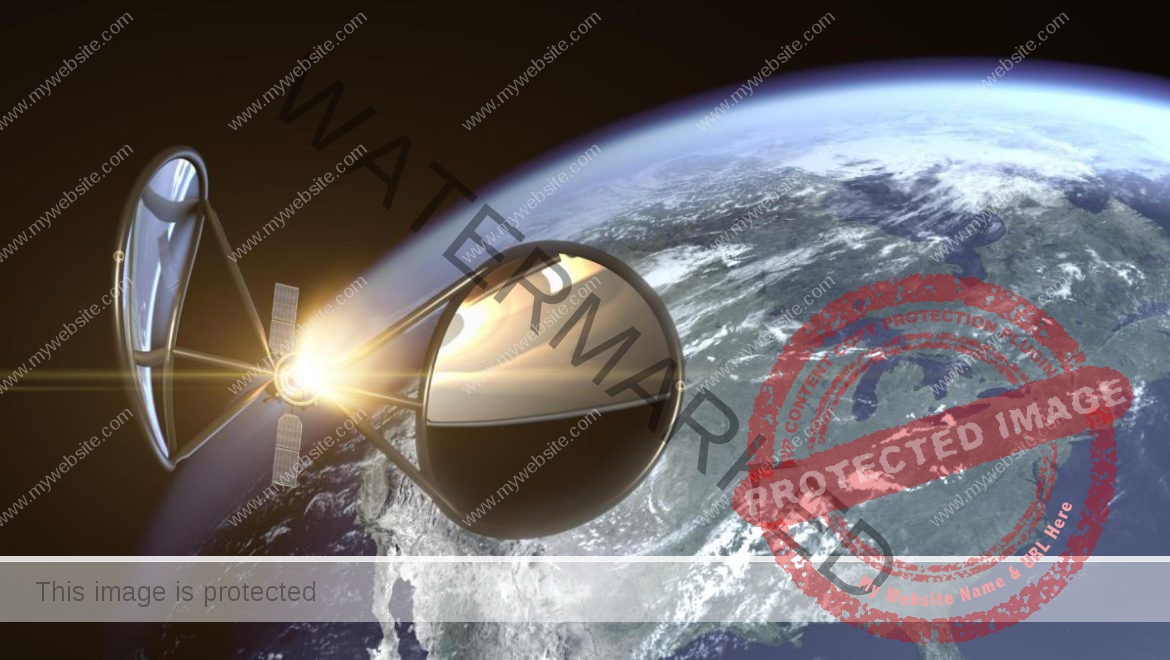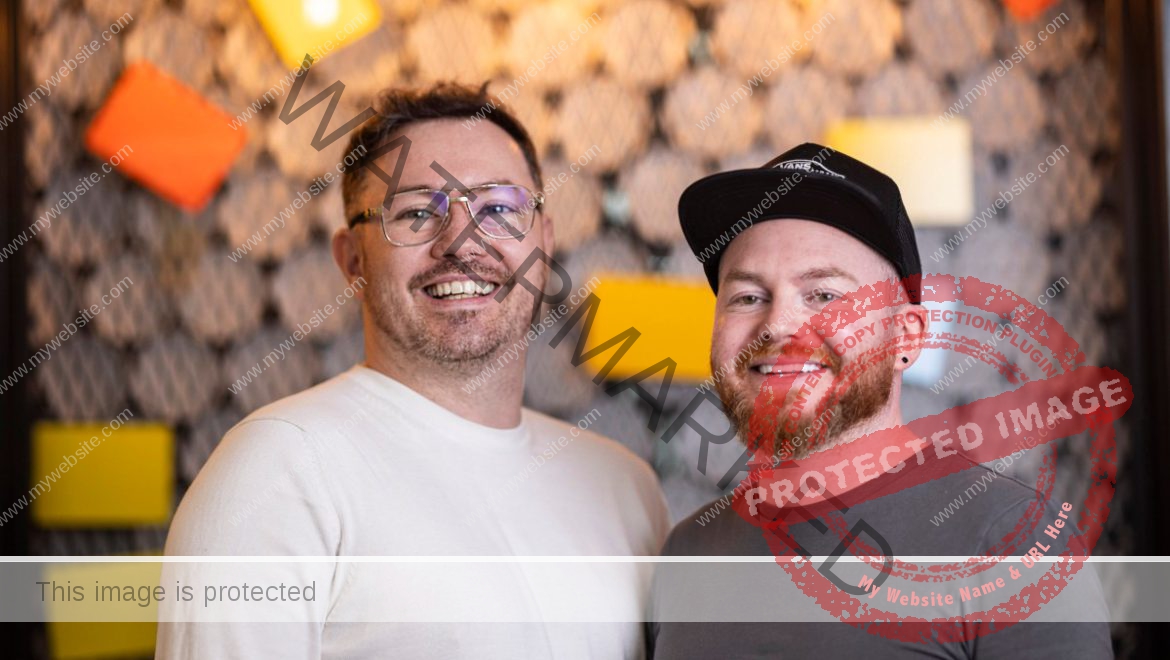Last spring, founders from all over the world began their treks to Techstars’ Stockholm accelerator program. Their backdrop was solemn: a bank run was in the process of crushing Silicon Valley Bank, and the entire startup industry was on edge.
The bank’s parent company, SVB Financial, was a major investor in Techstars and, like much of the startup world, Techstars had a sizable deposit there, according to sources. No one knew at the time whether those deposits would be wiped out.
A day before the bank completely collapsed, Techstars Stockholm Managing Director Alfredo Jollon posted an essay on LinkedIn saying he had bought shares in SVB Financial. His post expressed overall support for the bank, founders from the Techstars Stockholm program recalled, and came as VCs were telling their portfolio companies to withdraw their money from the bank.
What happened next was two weeks of chaos, according to at least four founders who were there.
On orders from Techstars CEO Mäelle Gavet, Jollon was told to take down the post because Techstars didn’t want to publicize its relationship with the bank, several founders recalled. Jollon didn’t immediately agree, but after a bit of back-and-forth, which included a threat to fire him, Jollon complied and removed the post. Gavet later published her own, more neutral social media post about the SVB collapse.
At first, the accelerator began as planned. But around a week into the program, Jollon was fired, and the founders were told to go home. Under Swedish labor law, Techstars couldn’t fire Jollon on the spot for insubordination, but it could make the entire local team redundant and shut down the program, multiple founders said.
The founders protested the shutdown and, after some negative press, convinced Techstars to reinstate the program. Jollon did not return.
“It was crazy, just crazy,” a founder from the program said.
The shutdown of Techstars Stockholm may have been extreme, but such an intense reaction was not unusual with Gavet’s leadership, according to at least 30 people who have worked with Techstars this past year. Many requested anonymity because Techstars did not authorize them to speak to the press, but their identities are known to TechCrunch.
Employees, founders and managing directors describe a classic tale of power, money and ego battling it out for the direction of a storied institution attempting to change. One source described the relationship between leadership and managing directors like Jollon as akin to a “cold war” in which no one has been spared.
Techstars’ annus horribilis included shuttering more programs, layoffs and an exodus of senior leadership and corporate sponsors until Gavet ultimately revealed “Techstars 2.0.” It’s a strategy that inverts the organization’s historic decentralized structure into a more centralized one under her command, according to internal documents seen by TechCrunch.
Gavet’s new strategy came from fierce pressure to change course after Techstars posted a $7.2 million loss on operations last year, according to documents seen by TechCrunch. But the price of this new path is also high, with cost-cutting measures that employees have described as contributing to a toxic and fearful work culture. In the end, though, it may be the founders who are most affected.
Techstars declined to comment on any specifics in this story after TechCrunch sent a multi-page fact-check document in advance of publication. It sent the following statement:
“Techstars’ commitment to investing in the best entrepreneurs and helping them succeed is unwavering. We are evolving to deliver even better support to the growing number of founders we invest in. It is reckless that TechCrunch has chosen to paint a distorted picture of our business by providing unnamed sources a platform for unverified grievances when the company’s success should be judged by the number of companies that we invest in that grow and thrive.”
An outsider steps in
Techstars already needed a revamp when Gavet became CEO in January 2021, according to several former employees.
She replaced co-founder David Brown, who remains on the board but has since become a partner at a Berlin-based venture capital firm, per his LinkedIn. (Brown did not return our request for comment).
At the time, Techstars was struggling with its future strategy, one former employee said. Should it focus on its corporate partnerships? Seed-stage investing? Or something else entirely? There was a burning desire to be a global network without any concrete plans to make that happen. She was “inheriting a mess,” the ex-employee said.
(Gavet pictured above at TechCrunch Europe Disrupt.) Some employees were worried that Gavet lacked the experience to run Techstars.
One big problem was Techstars’ complex and unique business model, which focused heavily on emerging markets in budding tech hubs. It had dozens of accelerators in more than a dozen countries. Some of them were corporate-backed programs, others were its own, where Techstars invested $120,000 from its investment fund for 6% to 9% equity in the companies that graduated from its accelerator programs. Each city accelerator required local staff, space, managing directors acting as fund managers and limited partner investors. Techstars’ business model was costly to scale, and the hope was that Gavet would give the company a clear direction.
Gavet is French and is known for her sharp decision-making skills and sense of humor, some former employees said — she once made a chocolate cake for an employee who expressed a craving.
But, she had virtually no experience as a startup founder or in venture capital. She started her career as a managing consultant at Boston Consulting Group; joined and was then promoted to CEO of Ozon (the “Amazon of Russia”), where she spent five years; then arrived at Techstars after nearly three years as COO of real estate company Compass, where, according to one source with knowledge of the matter, she had a strained relationship with founder CEO Robert Reffkin over the direction of the company.
Some employees were disappointed in her appointment. They wanted Brown’s CEO successor to have an equal breadth of startup experience as he did, like how Y Combinator would later promote Garry Tan when it replaced Geoff Ralston in 2023, a former employee said.
During her early days, Gavet talked big, telling employees she’d like to see Techstars invest in 5,000 companies a year — up from the several hundred a year it was already investing in. When asked how she landed on that number, she quipped that she wanted it to be 10,000 but was talked down, one former employee recalled. That person remembered asking her what her strategy was and that her response was simply to “scale.”
“I don’t think that ‘scale’ is a strategy,” the employee told TechCrunch. “That was a weird interaction that made me feel like she just didn’t get it.”
But in 2021, the venture market was in a record-setting frenzy, and everyone was throwing logical economics out the window. Techstars closed a $150 million fund that year and opened new accelerators in cities including Paris, Singapore, Stockholm and Saudi Arabia’s capital, Riyadh.
Gavet also started making organizational changes.
One former employee said that around three months after Gavet started, she shut down his department and terminated the management team in charge. Two former employees also recalled Gavet’s leadership trying to implement KPIs based on how many startups a managing director could source. This employee believed this would encourage managing directors to prioritize quantity over quality when picking founders for a program. These metrics were later ditched after they caused too much confusion, one employee said.
“That was just an astonishingly bad idea,” another former employee added. “If you incentivize people to get referrals, you’re not going to get the best companies; you’re just going to get people who are trying to respond to incentives.” (Techstars declined to comment on the KPIs.)
Bear market, new leaders
At the start of 2022, the industry’s pandemic-era growth began to retreat. Tech giants like Alphabet, Amazon, Microsoft and Salesforce started slashing their workforces. The Fed soon increased interest rates, making money hard — and expensive — to come by. Venture firms faced the chills of a bear market.
“The end of the good times happened during her tenure,” one former employee said.
“I struggle to understand how success can be achieved in a putative culture of gaslighting, threads, dissension, and dysfunction.” Techstars former employee
Gavet had just hired Marie Moussavou as chief portfolio service officer, the first of many women she would usher into the C-suite. Her hiring raised eyebrows because, though Moussavou had 15 years of experience at Amazon, she, too, had relatively little background in startups and venture capital. In April 2022, Gavet tapped Aparna Ramaswamy to lead human resources, and she also did not have much experience in startups. She came from Bridgewater and General Electric.
As the year dragged on, so did the tough market. In August 2022, Techstars had a meeting about the company’s financials, two employees recalled. The outlook worried several employees, some of whom started planning their exits. Others believed that “any position not directly connected to revenue generation could be on the chopping block,” according to one former employee who was later laid off.
As these employees feared, cuts were happening. In November 2022, Techstars terminated its entire ESG team with little warning and no explanation, according to screenshots seen by TechCrunch. The people affected included the program leader, who had just returned from COVID sick leave.
Stories of these firings spread fear throughout the Techstars workplace, and some employees started longing for the old days under Brown. Even team bonding seemed to have fallen to the wayside under Gavet, one employee said, meaning there were fewer chances to get to know new executive hires.
Employees say Techstars’ remote-working culture also exacerbated their sense of isolation, and gloom took root in the company.
Troubles in Sweden
Meanwhile, a cold war was simmering between leadership and managing directors, multiple former and current employees said.
During Brown’s time, managing directors were the lords of their fiefdoms, employees recalled. They were economically and emotionally tied to their programs. They chose participants and mentors and worked with local communities. They could brush off disagreements with corporate leadership, and overall, they were in control — or so they thought.
“Maelle targeted that belief and jumped into a power struggle,” one former employee said.
Jollon’s tussle with leadership was just one example. He was hired in 2022 to run the newly launched Stockholm program. While Techstars told founders they were closing the program due to the high costs of running it, two sources with knowledge of the matter said Jollon’s program was one of the most cost-effective in the Techstars universe. (Techstars declined to comment.)
The stakes are high for managing directors: If they are ousted and don’t comply with the company’s requirements on how they leave the company, they could lose all carried interest from their time running the program, which is a chunk of compensation. Jollon confided to those near him at the time, according to one person with knowledge of the matter, that he was worried about how his sudden firing would be perceived, especially among his fellow co-workers.
“I advocated tirelessly for program founders throughout my employment. Upon the advice of legal counsel, I cannot discuss my termination,” Jollon told TechCrunch when reached for comment via phone.
After Techstars fired Jollon, Nate Schmidt — then a Techstars general manager — flew to Stockholm from the U.S., intending to tell the founders to pack up and go home. But the founders had no intention of leaving. Many had spent thousands of their own money to move to Stockholm. “There was no going back,” one founder said.
They were planning to hold their own makeshift version of Techstars Stockholm in local cafés, the founders said. Schmidt agreed to try and find an alternative solution, and the talks lasted for days. Techstars offered the founders a virtual program, but they refused. “A virtual program is bulls—,” one founder said.
News about the program’s shutdown started leaking to the press, and Techstars bowed to the founders’ desire to reopen the program just days after it was shut. The program would continue at last — but without Jollon, the founders said. Of the 12 in the cohort, 10 founders agreed to continue, while two opted to do other Techstars programs.
There was a catch, though.
The frenzy at the start of the program meant that not all of the founders signed their initial program contracts. Once Techstars agreed to reopen, it offered a new contract, one that is now the standard for all programs. It no longer includes an equity-back guarantee clause, which allowed dissatisfied founders to request that their equity be returned.
As the program continued, multiple founders from the program said Gavet and corporate never initiated contact or reached out to them again — not for support, not to check in and not even to apologize. Since that cohort, Techstars Sweden has been paused indefinitely.
Cost-cutting and smelly offices
Throughout 2023, Techstars’ relationship with some of its corporate partners also grew strained.
In January, Northeastern University’s Roux Institute pulled the plug on its relationship with Techstars after two years.
“They are always looking for ways to shrink their footprint and save money. They are always looking for a reason to cut something, somewhere.” Techstars employee
Techstars’ work with Melinda French Gates’ Pivotal Ventures, which began in 2020 before Gavet started, was also not renewed, the organization confirmed to TechCrunch. The Louisiana Economic Development Agency launched a program with Techstars in March 2023 and also decided not to continue, the agency confirmed to TechCrunch.
Techstars’ relationship with J.P. Morgan, which supported an $80 million fund responsible for eight city programs for diverse founders, also began souring after incidents that left the bank dissatisfied, TechCrunch previously reported. The woman who helped oversee this partnership was let go, according to two sources. That partnership is likely not to be renewed, according to multiple sources. This means the fate of those programs — and their employees — remains uncertain, especially since Gavet told employees in a call heard by TechCrunch that Techstars currently did not have enough in its own funds to cover the entirety of the J.P. Morgan program. (Techstars declined to comment on the ending of partnerships.)
By mid-2023, Techstars was operating more than 60 accelerator programs in a dozen countries — up from around 40 in 2020 — and had missed its first-half revenue projections, according to documents seen by TechCrunch. Around this time, Gavet hired Shirly Romig as chief accelerator officer. Romig previously co-founded a digital food startup and was a vice president at Lyft and Equinox. Some employees at Techstars felt that she, like others in Gavet’s C-suit, lacked the in-depth venture knowledge and experience to run an accelerator team.
She and Ramaswamy, the head of human resources, were often the ones telling managing directors their jobs were in jeopardy, with Romig, in particular, garnering an internal reputation as a harbinger of criticism, according to multiple sources and messages seen by Techcrunch.
As 2023 progressed, so did the cost-cutting.
Ramaswamy hired Lerinne Capers in November as a temporary executive assistant to cover her original assistant’s maternity leave.
Capers grew concerned about Techstars’ work culture almost immediately after overhearing Ramaswamy publicly criticize her outgoing assistant, she told TechCrunch.
Capers’ working situation was also not ideal. When her workload once resulted in two hours of overtime, Ramaswamy made it clear Capers wasn’t to “exceed 40 hours,” according to emails seen by TechCrunch. Yet Ramaswamy kept assigning work just as the workday or workweek ended, the messages showed. Capers reminded Ramaswamy that if she wasn’t allowed to be paid for more than 40 hours, she couldn’t stay late and do the work for free.
Yet Ramaswamy routinely chastised Capers over failure to complete work. She once messaged Capers on a Saturday to complain that a task assigned on a Friday after 5 p.m. had not been completed, according to Slack messages seen by TechCrunch.
“There was an expectation to perform around the clock,” Capers told TechCrunch. She considered trying to alert someone about the workload expectations, “but this was the head of HR. She was the chief.” It was also common, according to two former employees, for leadership to contact people on weekends and expect responsiveness.
When Techstars moved into a new New York office in February 2024, Capers recalls that it didn’t at first hire an office manager or a cleaning service. She witnessed an incident involving backed-up sewage in the men’s room without someone responsible for resolving it. Trash was often left over the weekend, rotting in the kitchen, leaving a stench for Monday mornings.
Capers said at one point, leaders in the office asked her, “Why have you not dealt with this? When are you going to take out the trash?” she recalled. “I’m just like, ‘I’m not here to do that. I’m sorry, but that’s not my job.’”
Ramaswamy released Capers from her contract in early February. Capers posted that dismal conversation as part of a four-part series on TikTok, documenting minutes of Ramaswamy’s criticisms toward her.
Multiple Techstars employees told TechCrunch they were fired via similarly painful conversations. TechCrunch knows of at least three employees who are independently looking to explore legal action against Techstars.
“The culture at Techstars is autocratic and punishing,” one former employee said. “Under normal circumstances with great leadership, diversity of thought is encouraged; the spirit of entrepreneurship is embraced; strategies are not unilateral; and both human and financial capital is optimized. I struggle to understand how success can be achieved in a putative culture of gaslighting, threads, dissension and dysfunction.”
The missing managing directors
By early 2024, Techstars’ turnover was remarkably high. Between 2022 and early 2024, Techstars’ chief revenue officer, Europe general manager, chief technology officer, chief financial officer, chief accelerator investment officer, chief capital formation officer and chief legal officer all left the company. Schmidt, who handled negotiations in Sweden, has since left, and even Ramaswamy’s assistant, who was out on maternity leave, is said to have never returned.
Managing directors also continued to disappear, with at least two sources saying that some managing directors even tried complaining to the board and its chairman, David Cohen, about their confidence in leadership, to no avail. In the past two years, around 15 of Techstars’ 35 managing directors have exited for various reasons.
One managing director said that, on paper, Techstars seems like an ideal place to work. “The CEO is a woman who has written a book about ‘Big Tech’s empathy problem’ and calls for more diversity,” the person said. “In practice, it’s a toxic place, run by non-empathetic leaders, as confirmed by the extraordinary rate of employee churn among all groups, but especially among women and people of color.” (Techstars declined to comment on its workplace culture or churn rate.)
In December, Techstars Austin Managing Director Amos Schwartzfarb announced he would leave the company, and the program was subsequently paused. Saalim Chowdhury left as managing director of Techstars London a few months ago.
In January, Sunil Sharma, managing director of Techstars Toronto, was called into a meeting with Romig and Ramaswamy, and they simultaneously terminated him from his job, implied some blame on his part and offered him a part-time position, which he declined. Instead, he left the company, and Techstars paused the Toronto program indefinitely. Some insiders believe he is now contemplating legal action. (Techstars and Sharma declined to comment.)
“They are always looking for ways to shrink their footprint and save money,” one employee said, adding that there is a feeling among managing directors that any misstep could cause one to be ousted. “They are always looking for a reason to cut something, somewhere.”
Also in January, Equinor, a Norwegian-based energy company that had been Techstars Oslo’s corporate partner for seven years, pulled out. Afterward, that program was announced to be shuttering, too.
That month, Techstars also laid off 7% of its remaining staff — around 22 people — to save $8 million, according to an internal message. It later confirmed that it was shutting down more city programs like Seattle and the original mothership, Boulder.
Top Techstars accelerator programs have closed in the past year, including in Stockholm, Sweden; Toronto, Canada; Austin, Texas, and Seattle, Washington.
Toward the end of February, Gavet rolled out Techstars 2.0, featuring the centralized investment committees she would lead and a new job structure and compensation package for managing directors. The plan called for fewer programs in fewer cities — all still with the ambition of hitting billions of assets under management.
Managing directors received the power cut they feared: They were to now focus on helping founders fundraise, while a separate team would engage with the local ecosystem and another team would develop educational materials. A centralized team would source startups for the remaining city programs, and managing directors who led programs without a corporate partner would receive compensation from a shared pool of centralized capital.
Techstars would also now double down on markets in ecosystems like New York and San Francisco. The day Techstars formally announced 2.0, Chris DeVore, a former managing director for the Seattle program, published a blog post criticizing the changes and the company, citing information from insiders.
“Techstars offers an object lesson in the strategic cost of losing sight of your core customer in the relentless pursuit of growth,” DeVore wrote.
His blog post was shared widely, to the dismay of Techstars leadership, who believed employees may have spoken to DeVore.
Leadership had the computers of some employees searched, one former employee said. The next day, Romig sent an email to staff accusing two individuals by name of leaking to the press. She then announced they had been fired — one of them was a managing director, according to an email seen by TechCrunch.
“I felt like it was more a scare tactic than anything else,” an employee said about the public name and shame.
A hopeful annus mirabilis
Despite the internal pain of the past few years, hope is on the horizon. Documents seen by TechCrunch indicate that Gavet’s team has successfully raised a new fund of at least $50 million.
Cost-cutting helped the company end last year with nearly $50 million in operational cash. Those documents showed that it is adequate to give the newly reduced company a few years of runway, according to our calculations.
Still, uncertainty looms: Is the smaller Techstars universe now safe, or are more cuts to come? Two former employees even mused that Gavet was looking to fatten up the balance sheet to prepare Techstars for going public or some other kind of exit, like a spin-out or a sale.
There are reasons for so much speculation: One of Techstars’ marquee owners, SVB Financial, went bust, while another major investor, Foundry Group, is also winding down. Foundry Group was co-founded by Brad Feld, who is also a co-founder of Techstars. The firm first invested in the organization in 2011 and as recently as 2019.
Will Gavet eventually be seen as a hero whose decisions will prove justified — or as an ax-wielding villain, like some embittered employees claim? She could be neither or both. The sentiment among most of the dozens of people TechCrunch spoke to is to simply wait and see.














